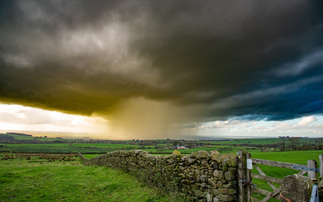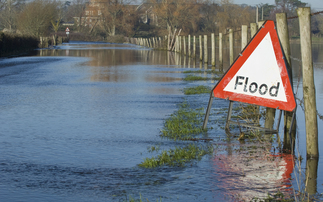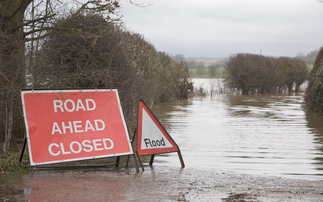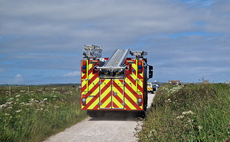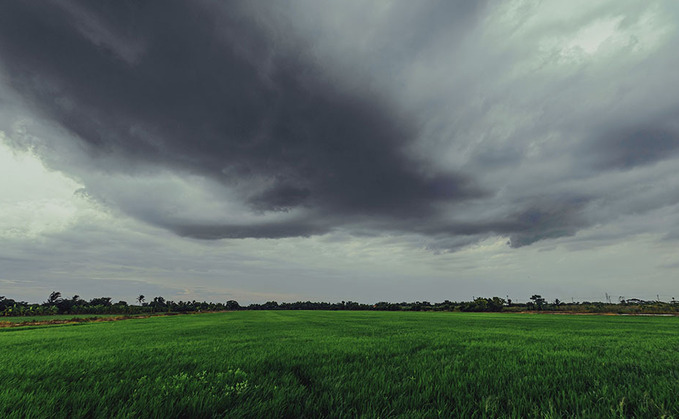
Farmers have been urged to protect their farms as the UK braces for Storm Agnes on Wednesday and Thursday.
Storm Agnes will move into western areas of the UK and Ireland on Wednesday, with a windy day expected across the UK.
Met Office chief meteorologist Matthew Lehnert said: "Storm Agnes will approach southwest Ireland early on Wednesday and track northeast across Northern Ireland and Scotland before clearing on Thursday morning.
See also: East Ayrshire girl, 9, dies after being hit by tractor
"Gusts of 45-55 mph are expected widely inland and 50-60 mph over hills and around coasts.
Listen to: Storm Arwen - The cost to farmers
Storm Agnes
"The strongest winds are expected to affect Northern Ireland, southwest Scotland, west and northwest Wales, Cumbria and Lancashire where some places inland may see gusts of 60 mph and 65-75 mph over hills and around coasts.
"These are most likely during the second half of Wednesday afternoon and through the evening."
NFU Mutual said gusts of 75mph could be strong enough to rip roofing sheets and cladding off rural homes and farm buildings, while fallen trees, branches and debris could cause damage to agricultural vehicles, machinery and livestock.
Heavy rain could also lead to localised flooding.
See also: 'Even if takes a bit longer to do a job, keeping you and your family safe is always key'
It urged farmers to plan ahead and take care if working outside in stormy conditions, adding safety should always be the ‘number one priority'.
NFU Mutual gave its top tips to keep safe:
Before the storm
- Stay alert for Met Office weather warnings
- Regularly inspect the farm and keep on top of maintenance whilst the weather is calm
- Check tiles, slates, and roofing sheets are in place and put away any items which cannot be secured
- Avoid being near barn doors if there are high winds
- Make sure gutters are not leaking and are clear of leaves and other debris
- Protect and lag water pipes in vulnerable areas and know where the water supply is so it can be turned off if pipes burst
- Ensure there is a good tree inspection programme in place, paying particular attention to trees bordering buildings, roads, railway lines and rights of way
- Prepare for power cuts by having torches and batteries to hand and make sure any generators are ready to use
- Plan evacuation routes to get staff and livestock to safety in the case of extreme weather such as floods
- Have your insurer's emergency helpline available
During the storm
- Do not leave the house or make journeys unless absolutely necessary
- Avoid the sheltered side of walls when walking
- If journeys are essential, drive slowly and carefully
- Do not attempt emergency repairs during the storm
- Keep all building doors and windows closed
After the storm
- Be aware after a storm or weather event, power cables or powerlines may have been brought down
- Do not enter any buildings that could be unsafe following a storm
Report any damage to the insurer













